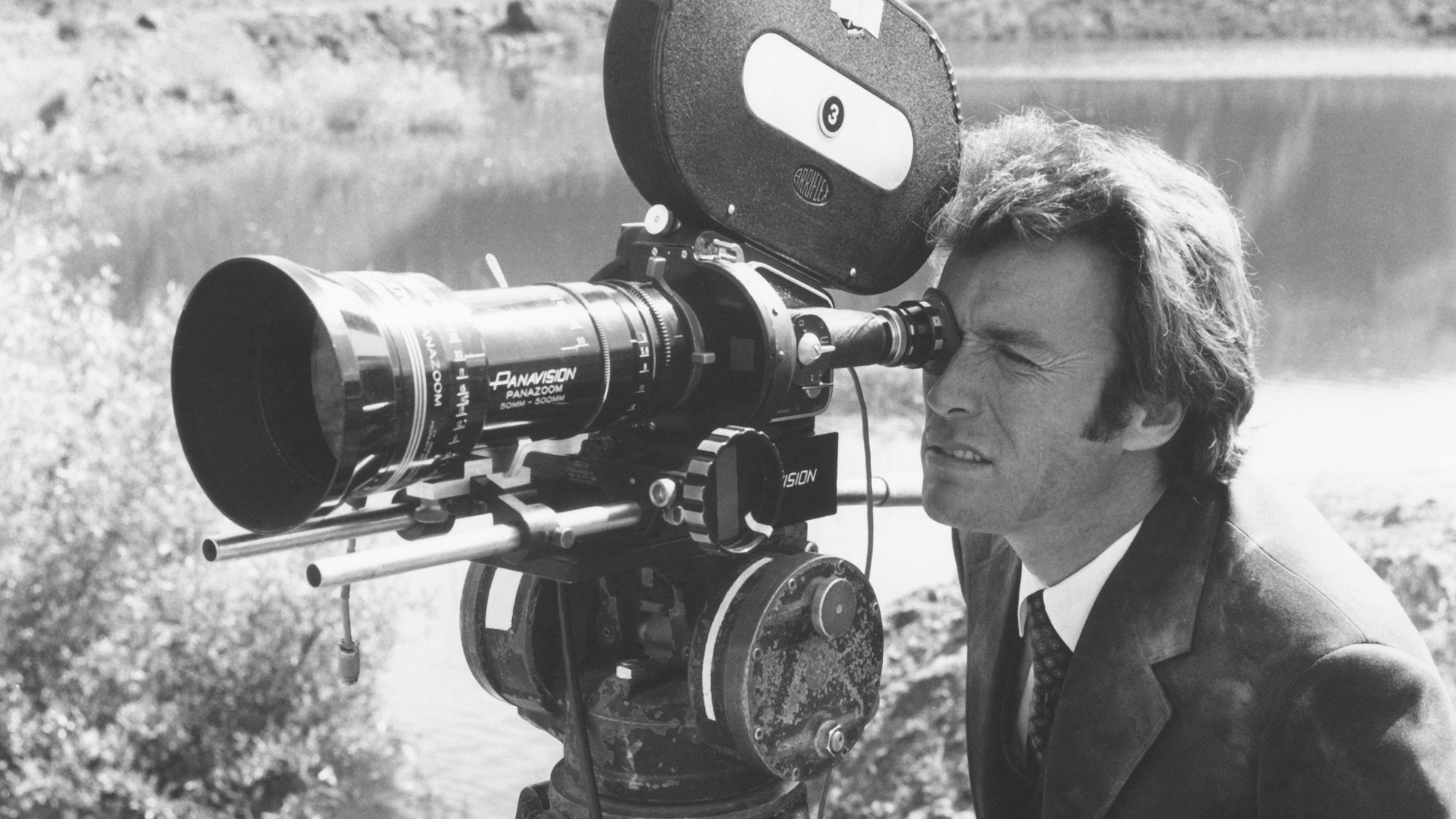Book reviews: 'Clint: The Man and the Movies' and 'What Is Wrong With Men: Patriarchy, the Crisis of Masculinity, and How (Of Course) Michael Douglas Films Explain Everything'
A deep dive on Clint Eastwood and how Michael Douglas' acting roles reflect a shift in masculinity

A free daily email with the biggest news stories of the day – and the best features from TheWeek.com
You are now subscribed
Your newsletter sign-up was successful
'Clint: The Man and the Movies' by Shawn Levy
"It's easy now to forget just how unusual Clint Eastwood's rise was," said Anthony Paletta in The Washington Examiner. A child of the Depression and a California native, he took up acting because he was told he looked the part. But his screen career was going nowhere until he was cast as a sidekick in TV's Rawhide, and he was 37 when the three Italian Westerns he made with director Sergio Leone finally made him a movie star in America. That same year, he took his first step toward directing by starting his own production company, and today, at 95, he's still making films and has earned a new biography. After a 1996 hagiography and a 2002 hatchet job, "what readers needed was some balance," and that is what Shawn Levy's new book achieves. The veteran critic proves an astute judge of Eastwood's work and "an unusually fair evaluator of Eastwood's politics."
"Eastwood is not an easy person to biographize," said Jonathan Russell Clark in The Washington Post. "The many things that make him a fascinating figure—his iconic roles, his prolific output, his rightwing politics, his sexual miscreancy, his alleged cruelty—make him both a rich and risky subject." At the same time, the story of his long career since 1967 "isn't inherently dramatic." Levy mostly focuses on Eastwood's many films. He describes Dirty Harry, the hit 1971 film about a vigilante detective that made the star a conservative hero, as gripping propaganda. And when he tackles the 40 films Eastwood has directed, he's as sharp on the 1992 masterpiece Unforgiven as he is on less-remembered efforts. But Levy's cinematic tour "sits uncomfortably" next to occasional descriptions of Eastwood's rampant infidelity, violent outbursts, and his vicious treatment of actress Sondra Locke after their 1989 split.
Levy "doesn't hold back" in detailing such ugly incidents, said Richard Brody in The New Yorker. But the great value of his book lies in its insights into Eastwood as a director. He characterizes Eastwood as "a capital-L Libertarian," then shows how, by working cost-effectively on every film from 1971's Play Misty for Me to last year's Juror #2, he has secured creative freedom and mastered a style in which story and performances unfold uninhibited. Along the way, Eastwood "has translated his belief in personal responsibility and personal freedom into art." Far from advocating for the unchecked individual exercise of power, he has constantly highlighted the risks and responsibilities of asserting power. Levy recognizes this about Eastwood, "showing that his glorious body of work reverberates with a sense of history because his worldview is itself a historical throwback."
The Week
Escape your echo chamber. Get the facts behind the news, plus analysis from multiple perspectives.

Sign up for The Week's Free Newsletters
From our morning news briefing to a weekly Good News Newsletter, get the best of The Week delivered directly to your inbox.
From our morning news briefing to a weekly Good News Newsletter, get the best of The Week delivered directly to your inbox.
'What Is Wrong With Men: Patriarchy, the Crisis of Masculinity, and How (Of Course) Michael Douglas Films Explain Everything' by Jessa Crispin
Michael Douglas isn't just a 1980s movie icon, said Alexandra Jacobs in The New York Times. "To the author Jessa Crispin, he is a symbol of how everything started to go terribly wrong for men in our time." Crispin is a marvelously peppery writer, "like the Patti Lupone of literary critics," and although her latest book is "all over the place," it's also a gas as it digs into Douglas characters such as the philandering husband of 1987's Fatal Attraction and the fed-up paper pusher of 1993's Falling Down, highlighting how they reflected the discomfort that middle-aged white men were feeling as women and racial minorities began to encroach on turf they'd long ruled. None of Crispin's analysis is dismissive of the demographic. She's "clearly sympathetic to men unmoored by changing norms," laying the blame for their anxieties on larger forces.
In the end, Crispin's is "a book about how global capitalism hollowed out the American masculine ideal and let feminism take the fall," said Andi Zeisler in Salon. "The Rosetta stone of What Is Wrong With Men is, unsurprisingly, Douglas' most iconic role: Gordon Gekko." Crispin sees the slick corporate raider of 1987's Wall Street as having severed the desire to build a good life from the value that men of postwar America had previously placed on living honorably. The production economy of earlier decades was transformed into a consumer economy in which the game was rigged in favor of the wealthy, and middle-class men lost out. As the shift occurred, Douglas was "our reliably hysterical everyman," constantly pushed to the breaking point.
Crispin felt no need to cover every Douglas movie, "yet there are some curious omissions," said Christopher Bray in The Spectator (U.K.). She skips The China Syndrome, Coma, and the rom-com It's My Turn, all early films in which Douglas played second fiddle to strong female protagonists. Crispin's book is "woker than an insomniac on a bed of nails," but its biggest shortcoming is that it isn't long enough to explore how Douglas landed in so many emblematic roles. Even so, Crispin is "witty and astute" and correct in her diagnosis of what's troubling men. "Whether or not she knows it, she is an old-fashioned humanist."
A free daily email with the biggest news stories of the day – and the best features from TheWeek.com